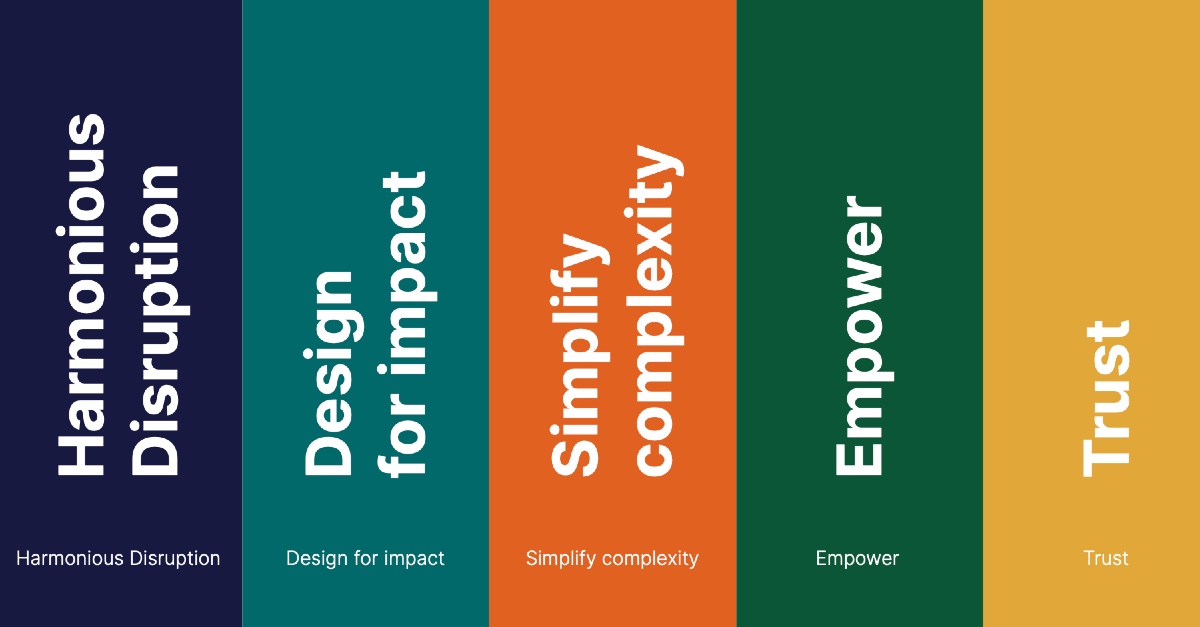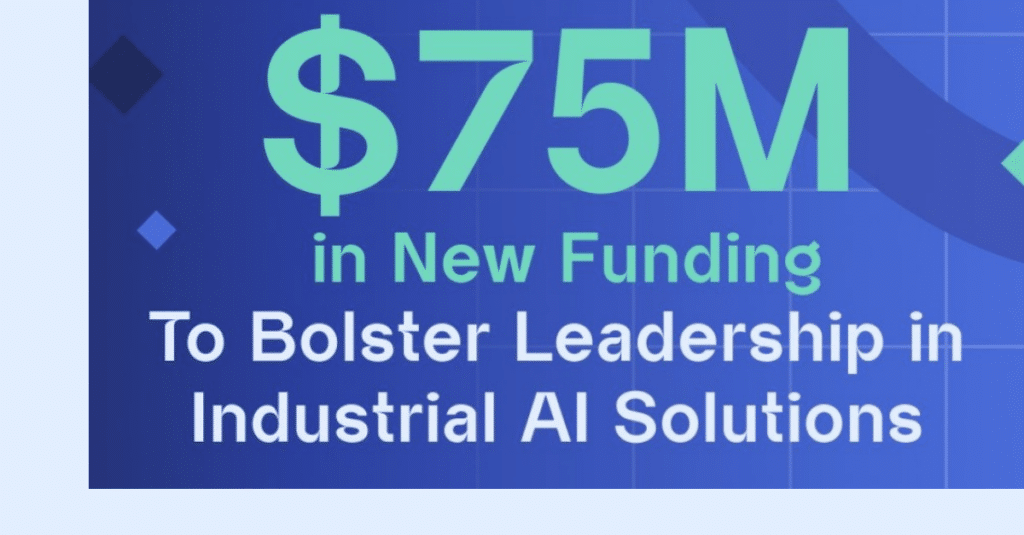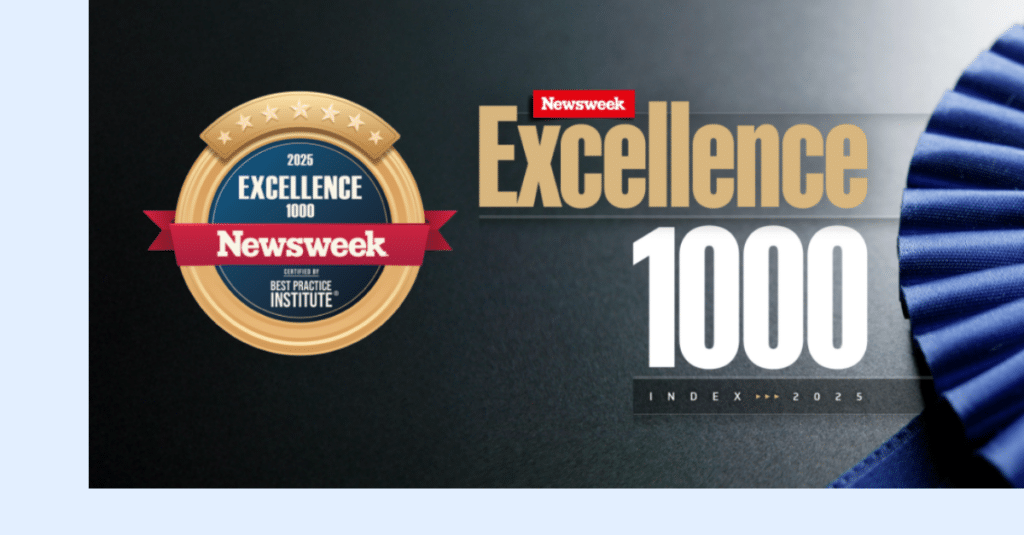
Augury recently established 5 experience principles to help maintain focus as the company continues to scale. We spoke with Augury’s Head of Design Guy Laor about what makes them tick. “These principles form that layer connecting our brand with how we engage with the world. They are the essence of who we are.”
Experience principles… What are they and why?
Guy: They provide a clear and actionable framework to help create exceptional products and services that align with the brand’s overall vision and values. Why do we need them? It’s a way of enforcing a consistent brand identity and differentiating ourselves from competitors. But it’s also a way of guiding decision-making – as we seek to improve customer experience and foster innovation. They help us scale and stay focused.
One thing to clarify upfront, we decided to call them ‘experience principles’ and not ‘design principles’ as most companies do. We did this so the principles would not be overly associated with the design team. We want everyone in the company to take these principles and apply them to their context.
To set the stage, can you give some examples of design/experience principles of well-known brands? The IKEAs, the Apples, the Volvos of this world…
Now when you look at the big brand’s principles you might find them quite generic at first, but you need to look deeper. Take IKEA: it has a strong focus on ‘Affordable Quality’. Meanwhile Volvo has ‘Safety’. In both cases it’s about building a story which is true to the brand promise. For instance, you can count on IKEA to be affordable or Volvo to invest heavily in R&D around driver and pedestrian safety. The buyer needs to trust that the seller will deliver on their promise and the experience principles help guide everyone in the company in the same direction – whether you’re designers, marketing people, product people, developers or services. Everyone has their part in building the experience, the relationship, and the trust.
What did you learn from studying the principles of others in the process of finding Augury’s own experience principles?
On one level, we were looking to answer the question: What makes these principles good? It became obvious that the good ones should be memorable, clear and concise – while staying relevant to the brand. They also need to inspire and be consistent. And perhaps most importantly: they need to be applicable and specific.
We also did some thought experiments. What if we followed IKEA in terms of installation? Would our customers have to pick up our equipment at a storage facility packed in brown boxes that fit perfectly in their car. Would our customers have to assemble our equipment using a funny little booklet? What would happen if we made such a funny little booklet? Or what would happen if we followed Volvo? Would our sensors be installed by people in robes wearing white gloves? What would our support look like if it was done by Apple? Or what would our app look like if done by AirBnB? These are all very interesting questions.
Very interesting – and fun! But in the end, you had to dive deep to develop Augury’s own experience principles. Where did you start?
We had to go on our own journey. We started with a workshop for a small group of people from different corners of the company, came up with some ideas and started iterating with more and more people. It took around two months of many iterations to get to a point where we felt comfortable to start sharing it with the whole company. So again, it came out from our vision and our mission – just like our brand, but now we have continued to investigate how our brand should be manifested in the real world.
Vision
A world where the combined work of people and machines makes life better in every way.Mission
To provide insights into the health of machines, processes and operations to transform how people work and what they can create
So, can you give a quick run-through? Let’s start with ‘Harmonious Disruption’…
We introduce new paradigms that drastically transform the industrial world, while being respectful to the mastery and legacy of our users. In other words, when we engage with the customer, we are not only this innovative company doing this crazy technological stuff. We don’t want to tear down the whole building and start anew. We come in and try to find a sensible and harmonious way to relate to the way they work, their routines, their philosophies. Together with them, we try to figure out the best approach.
In other words, you want to maximize impact – which very much relates to the next principle ‘Designed for Impact’.
We indeed create solutions that positively impact people’s lives. We are biassed for action, and therefore design end-to-end experiences that create the right level of urgency and responsiveness. We are thorough in the planning and execution of every touchpoint, ensuring it has a clear and specific purpose, leading to an impactful outcome.
For instance, if you need to ship something, the question should not be about if you shipped it, but about if the customer received it. It’s one thing to provide data, it’s another to offer actionable impact.
It’s about the real-world impact not some empty comment – which seems to also relate with the 3rd principle ‘Simplify Complexity’…
We operate in complex environments that consist of human, physical, and digital elements. We strive to make experiences that are simple to understand and engage with. To achieve this, we apply a human-centered approach and leverage technology to reduce anxiety, friction and cognitive load, so our users can act in an intuitive, clear-minded and focused manner.
Our goal is to simplify things not to overcomplicate. So for example, in terms of service, we need to consider how many people a customer needs to engage with. I would say: one point of contact in the form of a customer success manager is enough. Simplify! Simplify!
While also ‘Empowering’ the customer: Principle #4…
We create experiences that enable users to feel capable and confident. We empower users to significantly improve their decisions and take actions that help them achieve their professional and personal goals. We achieve this by providing them with tools and information, when and where they need it most – so they become self-reliant and can act independently.
Yes, we could hold your hand, but the goal is to have such an intuitive platform that you can understand it all by yourself and you are motivated to do something with it. Now, that’s empowering!
And now for the 5th design principle ‘Trust’ – which you already mentioned as the very reason behind experience principles…
We believe trust is key in transforming how people work. As trusted advisors, we help our customers solve complex problems by providing them with reliable information and actionable insights that are communicated in functional, transparent and consistent interfaces. Our communication is always clear, concise and authentic – instilling confidence in our dialogue.
This means: no BS. We are transparent and communicate things in a cohesive way. And obviously, creating and building trust is hard work: you need to build it slowly and you need to be super consistent, honest and authentic. If I bring an insight, it’s got to be the right insight.
Now you have the 5 principles. What’s the next step?
What we’re doing now is completely internal: implementing it within the company – going department-to-department, team-to-team, and advising how they can bring these principles into their day-to-day life. This is about going into a room and, for example, looking at a potential solution and filtering that through the five principles. We ask questions like: How does it create trust? Is it empowering? Is it simple? What impact does it bring? Will it integrate harmoniously in a new location?
Basically, we are training people to use it as a framework to offer direction when you are trying to figure out a product or process – or when you are trying to rethink established products or processes. We’re already getting very positive feedback from people and are seeing the principles being used in places we did not expect – such as with our AI team and People team.
What’s the big message you would like to get out there?
Experience principles offer a great framework for decision-making on many levels. And the principles we now have grew from our inner core. They reflect a common knowledge that already existed in the company – we only revealed and framed it. These principles are not just aspirational – they are who we are. They are rooted in Augury’s culture and essence. Use them and prosper.’
Read more about Augury’s scaling efforts:
‘Augury’s Next Horizon: Predicting A Better Future’




